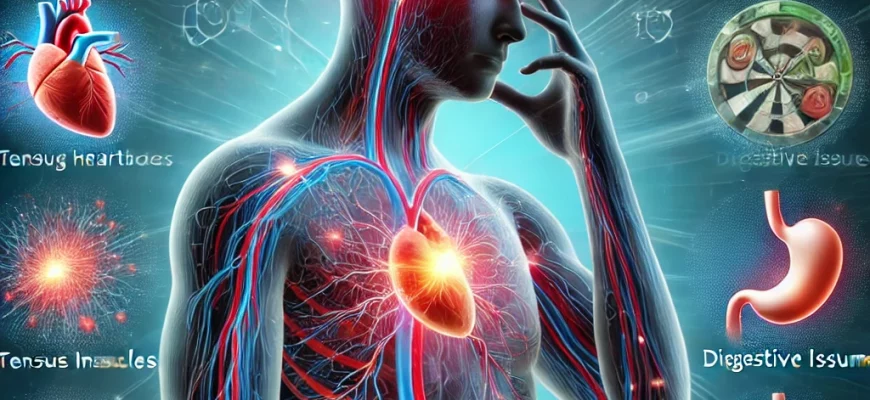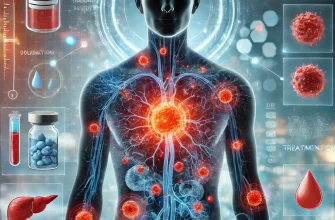The Interplay Between Mental and Physical Health The Concept of Mind-Body Synergy The term “mind-body connection” encapsulates the profound and dynamic interplay between our psychological and emotional well-being and our corporeal health. A primary example of this interplay is the influence that stress exerts on our physical state. While stress is an inherent aspect of existence and can occasionally serve a positive purpose, persistent stress can wreak havoc on our physical well-being. This exposition delves into the myriad ways stress impacts our health, the mechanisms at play, and approaches to manage stress for optimal health.
Grasping the Nature of Stress What Exactly is Stress? Stress is our body’s method of reacting to any demand or perceived threat. It sets off a series of biological responses known as the stress reaction, equipping us to confront the challenge. This reaction is commonly called the “fight-or-flight” mode and involves the secretion of hormones like cortisol and adrenaline.
Differing Stress Forms Acute Stress: This is the short-lived stress stemming from particular events, such as a job interview or a narrowly avoided car accident. In moderation, acute stress can sharpen our senses and enhance performance. Chronic Stress: This form arises from persistent stressors like a demanding job, financial woes, or long-term health problems. Chronic stress can be harmful, triggering various health complications.
Stress’s Impact on Physical Well-Being Cardiovascular Health Persistent stress can significantly affect the heart and blood vessels, elevating the risk of conditions like heart disease, high blood pressure, and cerebrovascular accidents.
Hypertension: Stressful reactions cause an increase in heart rate and narrowing of blood vessels, leading to higher blood pressure. Over time, this can become chronic, posing a serious risk for heart-related diseases.
Heart Conditions: Ongoing stress leads to inflammation that can harm the arteries and promote plaque accumulation, thereby elevating the chance of developing atherosclerosis, myocardial infarctions, and other heart ailments.
Immune Function Our immune defense can be compromised by stress, leaving us more prone to infections.
Immunosuppression: Long-term stress diminishes white blood cell production, weakening our ability to combat infections, making us more susceptible to common illnesses.
Inflammation: Stress induces the release of inflammatory agents, potentially causing persistent inflammation linked to a host of health issues, including autoimmune disorders and allergies.
Digestive Well-being Stress can upset the regular workings of our gut, resulting in various digestive problems.
Gastrointestinal Disorders: Stress can aggravate conditions such as irritable bowel syndrome, acid reflux, and inflammatory bowel diseases, leading to symptoms like stomach discomfort and irregular bowel movements.
Appetite Fluctuations: Stress can alter our eating habits. Some might lose their appetite, while others might overeat, which can lead to weight changes and nutritional deficiencies.
Musculoskeletal System Stress can lead to tension in our muscles, causing discomfort and other complications.
Muscle Strain: Stressful situations make muscles contract and tense up. Persistent tension can result in headaches and pains in various parts of the body.
Persistent Aches: Stress can intensify chronic pain conditions and make pain management more challenging.
Endocrine System Our hormone-regulating endocrine system is deeply affected by stress.
Hormone Disruption: Continuous stress causes an overproduction of cortisol, which can throw other hormones off-balance, influencing metabolism, sleep patterns, and fertility.
Metabolic Concerns: High cortisol can lead to weight gain, especially around the midsection, and heighten the risk of developing metabolic disorders like type 2 diabetes.
Mechanisms Underlying Mind-Body Synergy The Hypothalamic-Pituitary-Adrenal Axis The HPA axis is central to our body’s stress response. It involves the hypothalamus, pituitary gland, and adrenal glands, which collectively manage cortisol and other stress-related hormones.
Activation: The hypothalamus releases hormones in response to stress that prompt the pituitary gland, which then signals the adrenal glands to secrete cortisol.
Feedback Mechanism: This axis works through a feedback loop, where high cortisol informs the hypothalamus and pituitary to dial back hormone production. Disruption to this loop due to chronic stress can result in consistently elevated cortisol levels.
The Autonomic Nervous System The ANS handles many involuntary body functions and consists of the sympathetic and parasympathetic nervous systems.
Sympathetic Nervous System: Responsible for the “fight-or-flight” response, the SNS primes the body for stress reaction by increasing vital functions like heart rate and respiration.
Parasympathetic Nervous System: The PNS facilitates the “rest-and-digest” state, aiding the body to calm down and recuperate post-stress. Chronic stress can skew the balance between these systems, leading to prolonged activation and insufficient relaxation.
Stress Management Techniques Mindfulness and Meditative Practices Engaging in mindfulness, including meditative practices, focused breathing, and yoga, can mitigate stress by fostering a state of relaxation and present-moment awareness.
Mindfulness Meditation
This practice involves a gentle observation of one’s thoughts and sensations without passing judgment. It aids in soothing the mind and diminishing the feelings of pressure.
Deep Breathing
Employing techniques such as diaphragmatic breathing can trigger the Parasympathetic Nervous System (PNS) and foster a state of tranquility.
Physical Activity
Engaging in consistent physical exercise is a potent strategy for alleviating tension and enhancing overall health.
Exercise
Partaking in activities such as walking, jogging, swimming, or resistance training can lower stress-related hormones and boost endorphin levels, which are associated with an improved sense of happiness.
Mind-Body Exercises
Practices like yoga and tai chi merge physical activity with mindfulness, offering a comprehensive approach to managing stress.
Social Support
Robust social ties can serve as a cushion against stress and offer emotional backing.
Maintain Relationships
Invest time in relationships with family and friends, and partake in social gatherings that yield pleasure and satisfaction.
Seek Support
Communicate with trusted individuals about stress factors and consider professional assistance if necessary.
Healthy Lifestyle Choices
Cultivating wholesome habits can bolster one’s ability to withstand stress.
Balanced Diet
Embrace a diet rich in nutrients that propels overall health and wellness.
Adequate Sleep
Strive for ample rest by sticking to a regular sleeping pattern and establishing a serene nighttime ritual.
Limit Stimulants
Minimize consumption of substances like caffeine, alcohol, and nicotine that can aggravate stress and interfere with sleep.
Conclusion
The interplay between the mind and body underscores the significant influence that our mental and emotional well-being exerts on our physical health. Persistent stress can precipitate a multitude of health complications across the cardiovascular, immune, digestive, musculoskeletal, and endocrine systems. By recognizing how stress functions and applying efficacious stress reduction techniques, one can safeguard their physical health and elevate their quality of life. Embracing methods such as mindfulness, physical exertion, social connections, and salubrious living can curtail the adverse impacts of stress and cultivate a harmonious and healthful existence.









